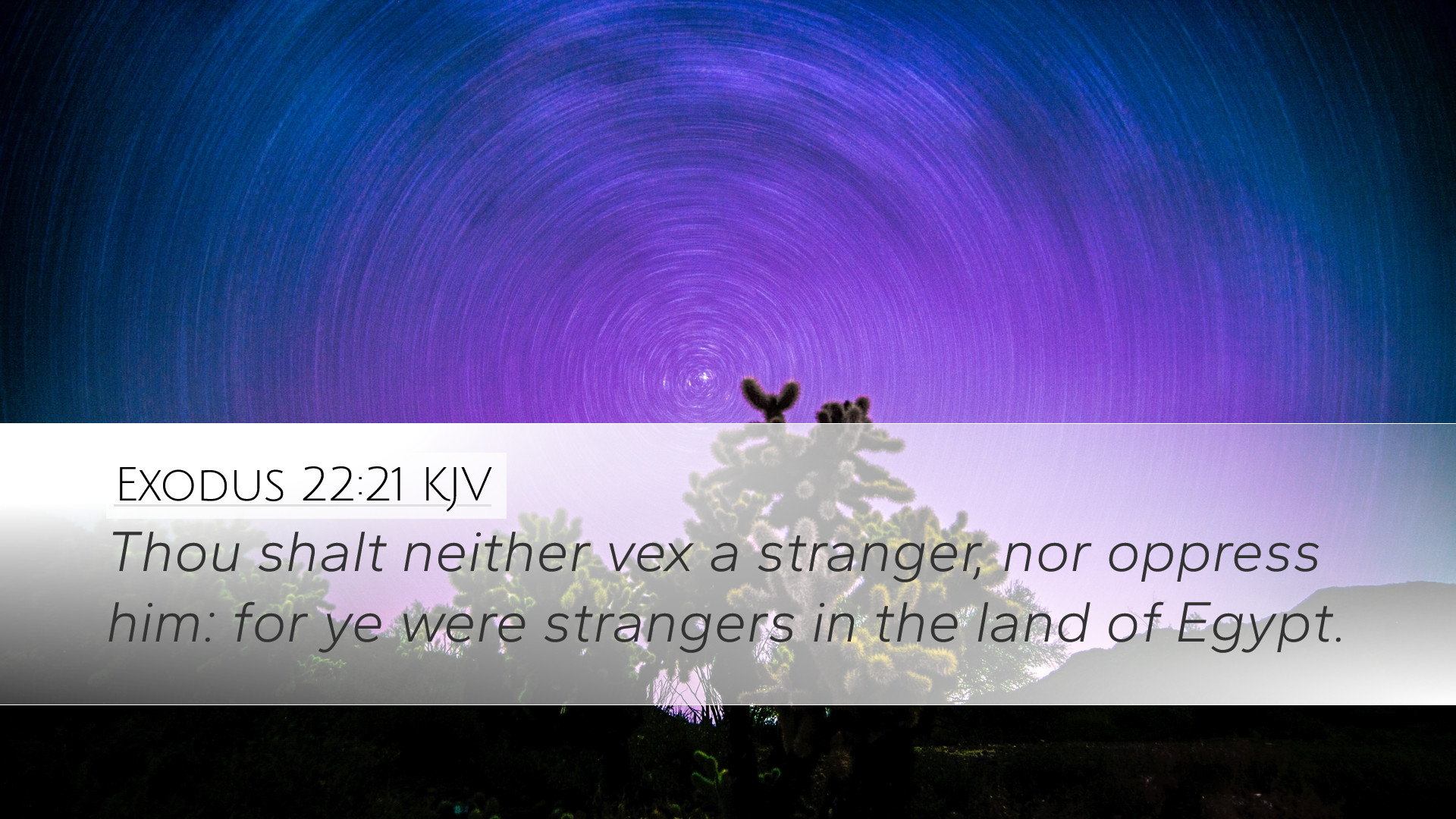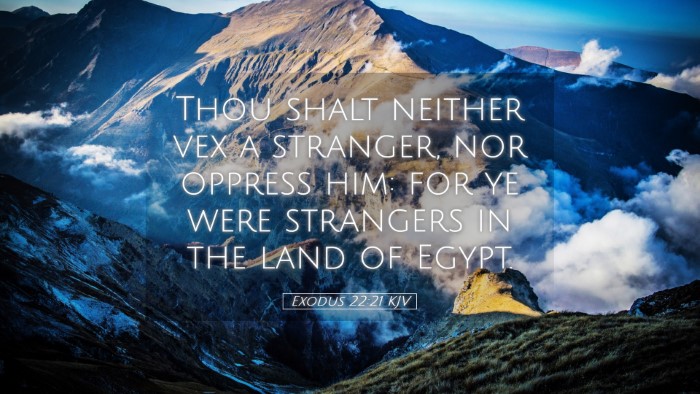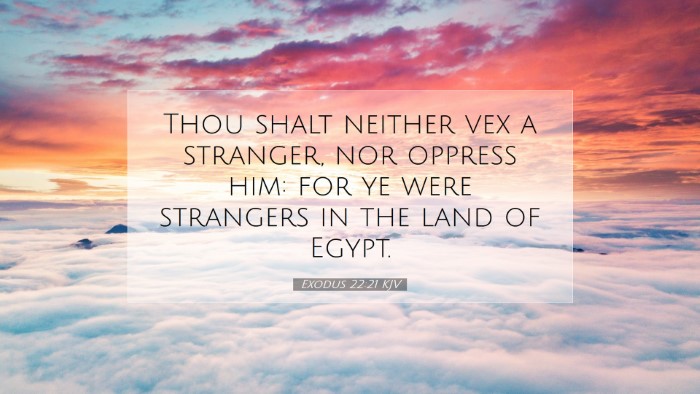Exodus 22:21 Commentary
Verse Text: "You shall not wrong a sojourner or oppress him, for you were sojourners in the land of Egypt: I am the LORD your God."
Introduction
This verse from Exodus emphasizes the moral principle of treating others justly, particularly those who are vulnerable, such as sojourners or strangers. The Israelites, having been oppressed in Egypt, are commanded to remember their past and extend kindness to those in similar positions. The following commentary synthesizes insights from notable public domain commentaries including Matthew Henry, Albert Barnes, and Adam Clarke.
Contextual Background
Exodus 22 is part of the broader covenantal laws God gave to the Israelites after their deliverance from Egypt. These laws serve to establish a community that mirrors God's justice and mercy. The commandments focus on how the Israelites should deal with one another and reflect their relationship with God.
Theological Significance
- God's Compassion: The command to protect the sojourner is rooted in God's own compassion for His people, having freed them from slavery. It calls the Israelites to mirror that divine compassion.
- Social Justice: This verse is a foundational call for social justice. It recognizes the plight of the marginalized and commands the Israelites to act justly to uphold the dignity of every individual.
- Remembrance of History: The reminder of their own status as sojourners serves as a powerful motivational tool—historical memory is a basis for ethical conduct.
Insights from Commentaries
Matthew Henry
Matthew Henry emphasizes that the Israelites' experience in Egypt should foster empathy and protection for the oppressed. He argues that God's injunction is not merely about prohibition but about promoting a culture of kindness and justice. In his view, the command is a reflection of God's character and sets the standard for human relationships.
Albert Barnes
Albert Barnes provides a more practical perspective, discussing the social implications of this law. He notes that the term "sojourner" refers to those who are not native Israelites, and their presence represents a test of Israel's integrity and faithfulness to God. Barnes stresses that the treatment of the sojourner is directly tied to their faithfulness in covenant relationship, asserting that their behavior towards these individuals will reflect their standing before God.
Adam Clarke
Adam Clarke highlights the importance of the covenant relationship between God and Israel, positing that their ethical obligations extend to all humanity, not just fellow Israelites. He interprets this verse as a challenge to national pride and exclusivity, arguing that their historical suffering should instill a sense of responsibility towards others. Clarke also connects the command to theological themes of love and mercy, urging the Israelites to embody these qualities in interpersonal relations.
Application for Today's Believers
This command is profoundly relevant for contemporary believers, urging them to consider their own responses to the vulnerable and marginalized in society. Through this lens, several important applications emerge:
- Empathy and Compassion: Believers are called to empathize with those who are marginalized, drawing from the historical narrative of their own redemption.
- Advocacy for Justice: The exhortation to protect sojourners encourages engagement in advocacy for justice, support for refugees, and attention to the needs of those around them.
- Community Responsibility: Just as the Israelites were responsible to one another, modern communities of faith are likewise charged with the care of those who may be vulnerable or oppressed.
Closing Thoughts
Exodus 22:21 serves as a timeless reminder of God's expectations regarding societal ethics. Believers are challenged to reflect on their own treatment of others, recognizing the interconnectedness of all humanity in God's creation. In doing so, they honor their own covenant relationship with God and exemplify His love to the world.


